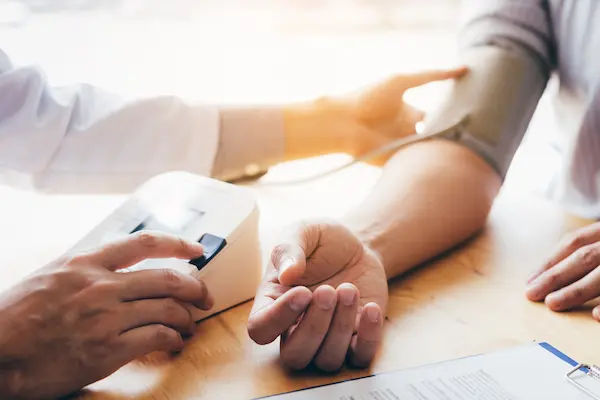- Male
- 27 Years
- 29/01/2025
I've been having chest pain on the left side whenever I sleep on my left side, but it doesn't hurt when I switch to the right side. There aren't any other symptoms, just this pain. Do you have any idea what might be causing this?
Answered by 1 Apollo Doctors
This type of chest pain that occurs with certain movements or positions, such as when lying on the left side, can sometimes be related to musculoskeletal issues or inflammation of the chest wall. To help relieve the pain, you can try taking over-the-counter pain relievers like acetaminophen (Tylenol) as needed. Additionally, applying a warm compress to the painful area may also provide some relief. If the pain persists or worsens, it is advisable to consult a healthcare provider for further evaluation and management.
Dr. Dr Khaleel Suggests...
Consult a Cardiologist
Answered 04/07/2025
0
0

More Cardiology Health Queries
View allI've been having this burning sensation on the left side of my chest for the last three months. It's not super painful, more like an irritation, but sometimes it feels like pinpricks and can also move to my armpit and back. I've had a 2D Echo and two TMTs, and everything came back normal, but I'm still feeling this discomfort. Should I be worried about this? Do you think I should get another TMT or look into something else?
Considering your symptoms and the normal results of your previous tests, it is important to rule out acid reflux as a possible cause of your chest irritation. I recommend trying a proton pump inhibitor like Omeprazole 20mg once daily before breakfast for 4-8 weeks to see if it helps with your symptoms. Additionally, you can take antacids like Tums as needed for immediate relief. If the symptoms persist or worsen, further evaluation may be needed, but repeating the TMT may not be necessary at this point.
Answered by 1 Apollo Doctors
I've been feeling some movement on the left side of my chest, and I've already had an ECG and a 2D echo done. The ECG showed sinus tachycardia, probably because I was feeling anxious at that moment, along with right axis deviation and a borderline result. But the 2D echo came back normal. I'm also checking my heart rate often to see if it's palpitations, but it's normal, around 70-80. I'm not sure what's causing these movementscould it be gas or maybe something to do with nerve movements? What do you think?
It sounds like you are experiencing some discomfort in your left side chest area. Based on your ECG and 2D echo reports, it is good to know that your heart seems to be functioning normally. The sinus tachycardia with right axis deviation and borderline ECG findings may be related to your anxiety at that moment. Since your heart rate is normal (around 70-80), the movements you are feeling in your chest may not be related to palpitations. It is possible that the discomfort could be due to gas or muscle movements. To help with the discomfort, you can try taking an antacid like **Ranitidine** 150mg for gas relief. Additionally, you can also consider taking a muscle relaxant like **Cyclobenzaprine** 10mg to help with any muscle spasms that may be causing the movements in your chest. Make sure to follow the recommended dosage instructions for these medications and if the symptoms persist or worsen, it would be best to follow up with your healthcare provider for further evaluation.
Answered by 1 Apollo Doctors
I've noticed that for the past six months, my blood pressure has been consistently around 140100. It used to be normal before that. I also make sure to do regular physical exercises. Should I be worried about this change? What could be causing it even though I'm staying active?
I recommend you start taking antihypertensive medication to help lower your blood pressure. You can try starting with a low dose of Amlodipine (brand name: Norvasc) 5mg once daily. However, it's important to consult with a healthcare professional for proper evaluation and monitoring.
Answered by 1 Apollo Doctors
Disclaimer: Answers on Apollo 247 are not intended to replace your doctor advice. Always seek help of a professional doctor in case of an medical emergency or ailment.

_1.webp)

